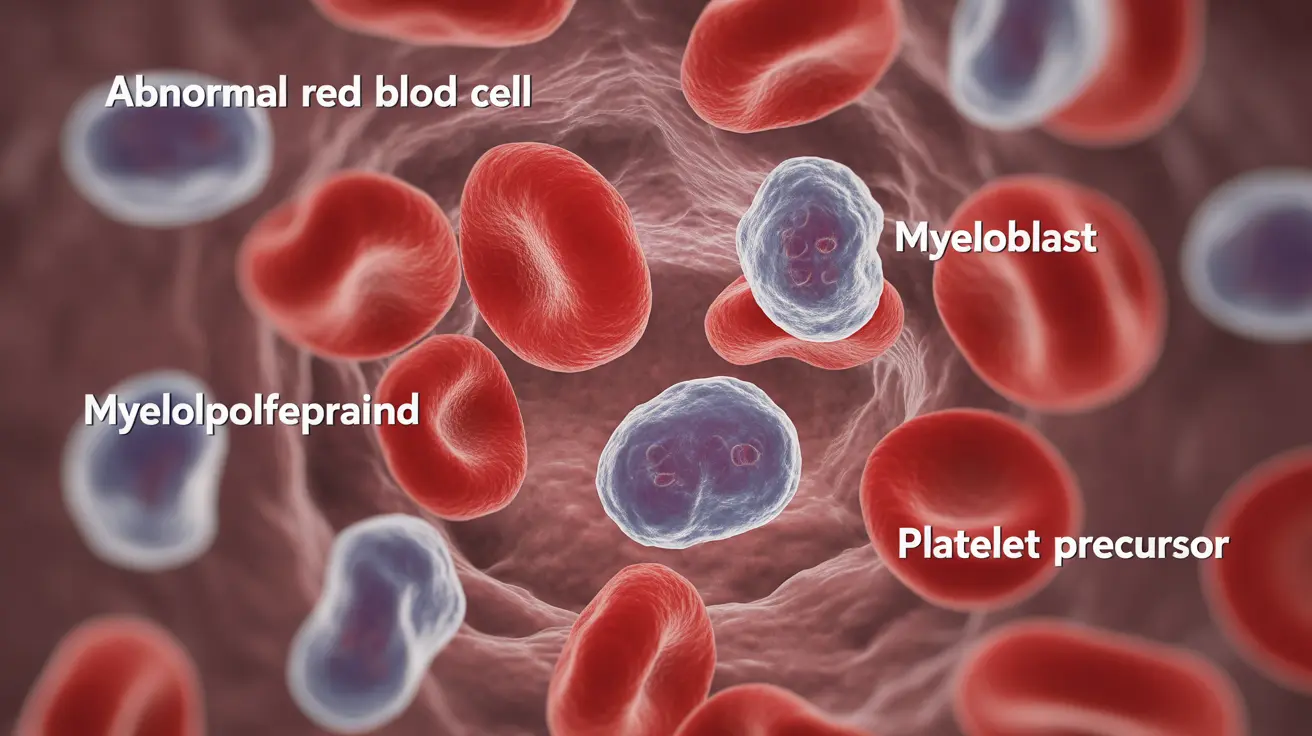Myeloproliferative disorders (MPDs) are a group of blood conditions that affect how your bone marrow produces blood cells. Recognizing the early signs of these disorders is crucial for timely diagnosis and treatment. While these conditions can develop slowly, understanding the initial symptoms can help you seek medical attention when needed.
This comprehensive guide will explore the early warning signs of myeloproliferative disorders, helping you understand when to consult a healthcare provider and what to expect during the diagnostic process.
Common Early Warning Signs
Myeloproliferative disorders often present with subtle symptoms that may be easily overlooked or attributed to other conditions. Here are the most common early indicators:
Fatigue and Weakness
One of the earliest and most common symptoms is persistent fatigue that doesn't improve with rest. This occurs because MPDs can affect your blood cell production, leading to decreased oxygen delivery throughout your body.
Unusual Bleeding and Bruising
Many people with early-stage MPDs notice they bruise more easily or experience prolonged bleeding from minor cuts. This happens due to abnormal platelet function or counts in your blood.
Night Sweats and Fever
Unexplained night sweats and low-grade fevers can be early indicators of myeloproliferative disorders. These symptoms occur as your body responds to changes in blood cell production.
Physical Changes and Discomfort
Enlarged Spleen
An enlarged spleen (splenomegaly) is a common physical sign of MPDs. You might notice fullness or discomfort in your upper left abdomen, or feel full quickly when eating.
Weight Changes
Unexplained weight loss can occur in the early stages of myeloproliferative disorders. This might happen even without changes in diet or exercise habits.
Diagnostic Process
Initial Evaluation
When you present with symptoms, your healthcare provider will typically start with:
- A detailed medical history
- Physical examination
- Complete blood count (CBC)
- Blood smear analysis
Advanced Testing
If initial tests suggest an MPD, your doctor may recommend:
- Bone marrow biopsy
- Genetic testing
- Molecular studies
When to Seek Medical Attention
It's important to consult a healthcare provider if you experience:
- Persistent fatigue lasting more than two weeks
- Unexplained bruising or bleeding
- Night sweats accompanied by fever
- Unexpected weight loss
- Pain or fullness in your upper left abdomen
Frequently Asked Questions
- What are the early signs and symptoms of a myeloproliferative disorder?
The early signs include persistent fatigue, easy bruising, night sweats, unexplained weight loss, and fever. Some people may also experience abdominal discomfort due to an enlarged spleen.
- How is a myeloproliferative disorder diagnosed in its early stages?
Early diagnosis typically involves blood tests, including a complete blood count and blood smear analysis. If these tests show abnormalities, doctors may perform bone marrow biopsy and genetic testing for confirmation.
- Can fatigue and easy bruising be symptoms of an early myeloproliferative disorder?
Yes, fatigue and easy bruising are often among the first noticeable symptoms of MPDs. These occur due to changes in blood cell production and function in the bone marrow.
- What causes an enlarged spleen in people with myeloproliferative disorders?
An enlarged spleen occurs because the organ works harder to filter abnormal blood cells produced by the bone marrow. It may also act as an additional site for blood cell production in some cases.
- When should I see a doctor if I notice symptoms like night sweats or unexplained weight loss?
You should consult a healthcare provider if you experience persistent night sweats, unexplained weight loss, unusual fatigue, frequent bruising, or abdominal discomfort lasting more than two weeks.




